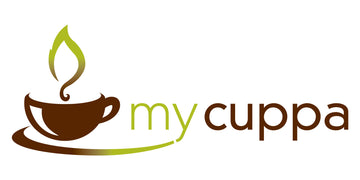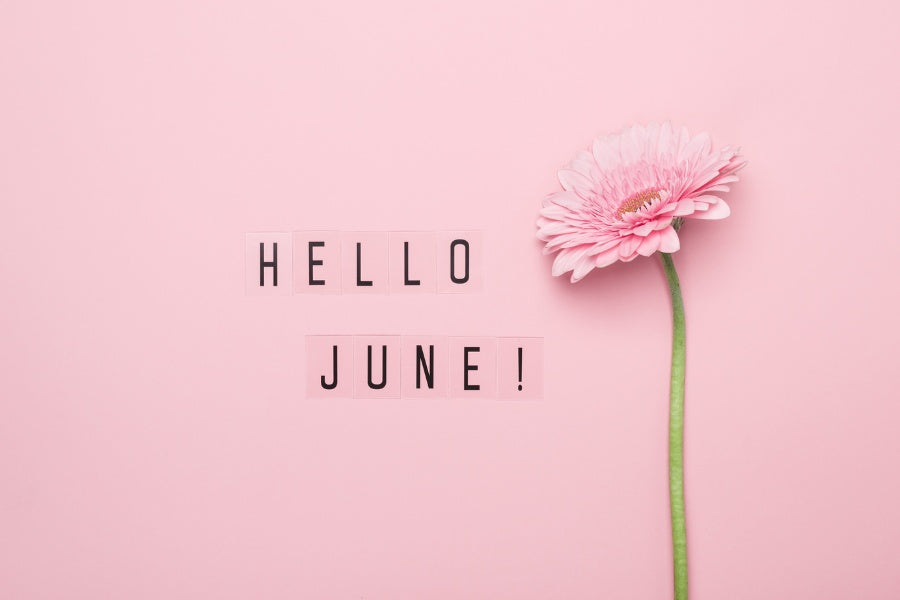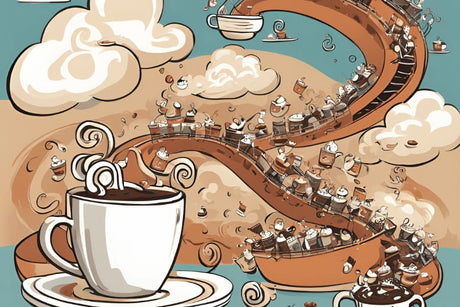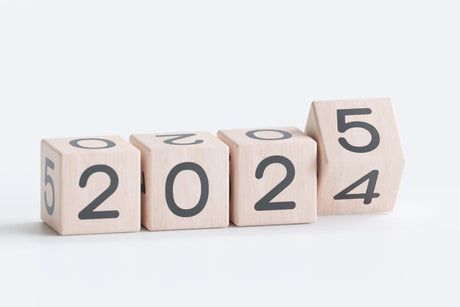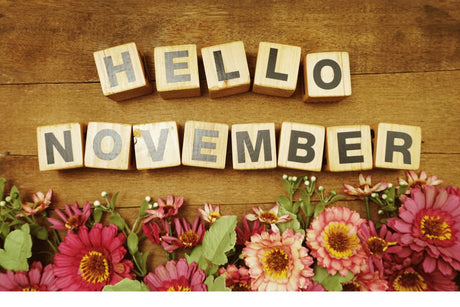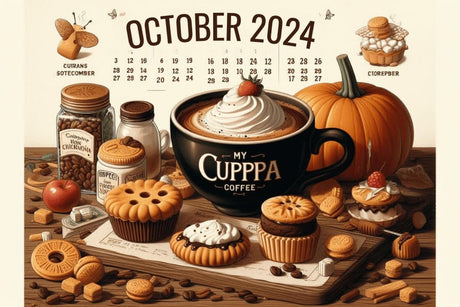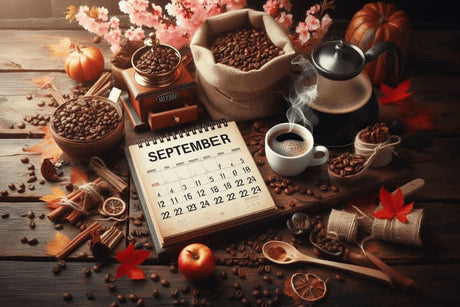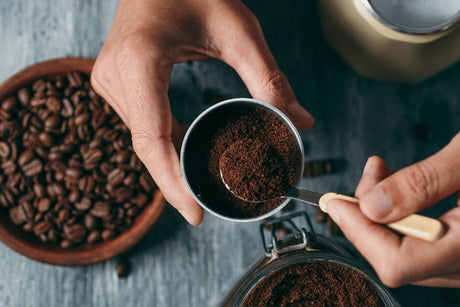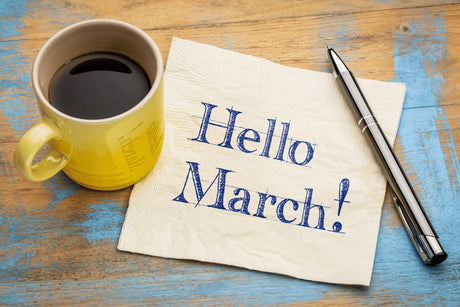mycuppa June 2016 Newsletter
Ethiopia Harrar (aka Dark Horse)
Anyone with more than a passing interest in coffee will know that there is something special about Ethiopia.
History buffs may refute this claim, but Ethiopia truly is the "spiritual birthplace of coffee", and whilst Brazil is the volume bell-weather of our global market, it's fair to say that all eyes remain fixed on each crop from Ethiopia as these amazing, distinctive coffees are the key feature, an essential highlighter or in many cases the critical game-changer in any roaster's arsenal.
Technically, coffee originated in Yemen, but with that country devastated by civil wars, extreme weather conditions, incredibly difficult terrain, poor infrastructure and limited opportunities for trade and export, Yemen produces such a small quantity of coffee that the price and rarity make it impractical for commercial applications.
Yemen coffees are intense, powerful and complex in ways few origins can match.
Ethiopian coffees can share many similar characteristics to Yemen; however, Ethiopia has, without doubt, the broadest spectrum of flavour possibilities for any coffee-producing country - there is no end of descriptors for Ethiopian coffees, and it's the primary reason that Ethiopia captures the lion's share of the market's attention and more importantly imagination.
Within Ethiopia, there are growing districts that have lent their names to the varietals that we are accustomed to seeing on labels in retail packs of coffee.
Ethiopian coffee beans are considered some of the world's oldest varieties and are often called "heirloom" beans.
The growing districts can produce amazingly diverse coffees ranging from fruity, winey, rustic attributes of the sundried processing to the black tea, oaky, lemony, honey, buttery characteristics of the washed coffees.
One thing is for sure - Ethiopians punch way above their weight; like Kenyans and other African coffees, they are intense with flavour and, depending upon the processing method, can produce incredible aromatics and body.
We have always collected many Ethiopian coffees - Yirgacheffe, Sidamo, Limu, Harrar, Djimmah, Lekempti, and Bench. In many of these, we have both the washed and the sundried at various times of the year.
Ethiopia faces a significant challenge in producing quality coffee beans - their demand always exceeds the supply considerably.
Due to the long-established coffee culture in the country, a considerable portion of the harvest (up to 40% or more) is consumed locally.
Ethiopia has one of the lowest export ratios among the top-tier coffee-producing countries, meaning they export a smaller proportion of their coffee than other leading coffee-producing nations.
If you speak to Coffee brokers, their biggest constant year-round headache is Ethiopia - they can't get enough and more to the point, the competition for the best lots is brutal.
As a result, quality Ethiopians carry a price premium in the market - particularly high-demand varietals such as Yirgacheffe, Sidamo, Limu and when the crop is good, Harrar.
Each year, the comparative quality of Ethiopian coffee can vary dramatically as the terrain experiences greater influence from the prevailing weather during the growing periods. Issues like the drought last year affected cup quality across the board.
Situations like that create anxious moments for coffee roasters relying upon fantastic Ethiopians to lift their blends.
Although Yirgacheffe is often considered the quality benchmark in Ethiopia, I believe Harar is the "Dark Horse" varietal that deserves attention.
Harar, along with Bench, Djimmah, and Lekempti, are the wild beasts of Ethiopia.
When they are on the mark, they are untouchable in terms of complexity - bursting with flavour and rare characteristics from their sun-dried processing.
Experienced roasters often confess to having a long-standing love-hate relationship with Harrar coffees.
It's the most difficult and complex of all Ethiopian coffees to consistently source, roast and sell in a commercial setting as the lots have such diversity.
Many years ago, the best quality Harrar coffees were renowned for Blueberry notes.
To some extent, we have witnessed a diminished element of blueberry over the last ten years - in some crops, there is no hint of blueberry.
Prized Harrar coffees are astonishing to drink as the blueberry element provides a delightfully zesty contrast to the caramels, chocolates and winey flavours - it's hard to describe how well they taste.
The Harar region of Ethiopia (the common or universal spelling of the varietal known in the coffee world is Harrar) is located in an area that is a far way Eastern of all other Ethiopian growing districts.
Harar is often called an Island within Ethiopia - in ancient times, walls were built around the city to protect its trade and commerce.
Over time, Harar has constructed the highest number of Mosques per square meter of any city worldwide.
The terrain is mountainous, rugged, arid, and difficult, and the varietals are exclusively heirlooms with some of the lowest yields in the world.
Due to these low yields, the price is high for select grades due to the labour-intensive process of hand picking, sorting and processing - the effort involved in producing a single kilo of coffee is incredible.
It's for these reasons that, in recent times, coffee farmers in Ethiopia have been looking at alternative crops (non-coffee) that offer higher yields, lower labour effort and greater cash returns.
It's disappointing to hear that future volumes of Ethiopian coffees are forecast to decline - certain to ensure they become a rare and more expensive commodity over time.
2015, we were hamstrung by dramatically lower imported volumes and average cup qualities.
Whilst this year is a better story, I still have this lingering question about "opening the floodgates" on a bean that is ridiculously difficult to replace at any time of the year.
We have customers who have purchased Harrar religiously for years and years - they won't drink anything else - just like those numerous Monsoon Malabar devotees; their coffee universe revolves around what they love and enjoy, so they stick to it.
These customers appreciate the complex explosion of flavours, incredible spice and the earthy, rustic, winey characteristics that Harrar does best.
- Flavour - sweet berries and cream up front.
- Acidity - winey, clean and balanced.
- Body - full and tending to bold.
- Finish - long with cocoa.
This lot is hand-picked, hand-sorted and dry-processed - it works best with a lighter roast to preserve the fruit, and I, therefore, roast this coffee with a gentle profile to protect the delicate bean structure of the heirloom varietal.
The roasted finish is uneven (variations in the size, shape and colour); therefore, you should not be alarmed as it is a normal part of the natural process of this unique and distinctive coffee.
Please note that there may be random pockets of blueberry in your coffee.
This is due to the small farm lots and how the cherries are sorted, combined, and graded at the Co-Ops.
Some intermixing will occur at the bagging stage in Origin, Harar.
This diversity results in a broad spectrum of flavours and finishes, making it normal to experience slight differences between cups.
So, don't be surprised if one cup tastes slightly different from the next - that's the excitement and fun of Harrar.
You can purchase it here - HARRAR.

What does that score mean?
They do it in MasterChef, My Kitchen Rules, and every other contest.
You may have stumbled across the occasional comment about a coffee scoring 85 points and wondered what they are shouting about.
Does it mean the coffee is good or great? Will it pass my test of a nice or delightful coffee?
Is it a score out of 100 or some other ambit scale with a meaning obscured to all except those secret wizards trading in raw coffee beans?
Or did you think for a moment, hang on, why can't I buy or drink 100-point coffee - I certainly deserve it!
The answers could be more straightforward to explain - I have authored an article on this practice as it applies to the Australian commercial coffee market.
Still, due to the risk of controversy, we have kept the content of this article as a Newsletter subscriber exclusive.

Cocoa and Coconut Blossom Drinking Chocolate 900g
Our product is made by blending 56% West African Cocoa, Chocolate Liquor, and Organic Coconut Blossom Sugar.
This is a premium drinking chocolate where the coconut blossom delicately balances the bittersweet element of the super-high cocoa.
Available here - Drinking Chocolate Powders Online
GreenSpoon 250g
We are looking for a quality Stevia-based sweetener that is 100% natural and healthy for your family.
The search is over!
Our product is perfect for health-conscious people and is suitable for people with diabetes.
It contains no harmful chemicals and is an excellent addition to daily tea or coffee. Plus, it is great for cooking! Each can have around 165 servings.
Please note that we no longer sell sweeteners, but you can still find our product at GreenSpoon.
Dirty Chai 240g
Of course, it had to happen - crossing an espresso with a chai tea!
The bittersweet infusion of espresso, black tea and exotic spices makes for an interesting and refreshing beverage. 12 serves per can.
Available here - Buy The Best Chai Powder
Chai Tea with Pomegranate 240g
This was a real surprise package.
The fruitiness of the pomegranate works remarkably well with the traditional chai tea and spices.
12 serves per can.
Chai with pomegranate is no longer available here, but we have a green matcha chai tea powder here.
Coffee Subscription:
Not new, but we have streamlined and simplified the Coffee Subscription service to reduce the variations to a simple frequency and time frame.
There is no more Black Lovers, Single Origin or Blends option (existing commitments will be honoured for these styles) - just the high-end Connoisseur range.
Since its inception, our list of Subscribers has grown into a large group of avid devotees.
As a product, it's become a popular seller due to our extra efforts in sourcing rare and exotic coffees.
Subscription coffees are unavailable in our mycuppa store, and the best part of my job is shopping for coffees to schedule in future month's subscription runs.
It is no longer available, but we used to include many Limited Release Estate Coffee Beans.
New crop arrivals
New season Guatemalans have hit the deck, and as we have always come to expect, these are superb, classy coffees.
We are harvesting new crop PNGs, which will be delivered in late July.
We have something really special planned for the future arrival.
In addition, we will be receiving fresh-crop Ethiopians next month, as well as shipments from Panama, Kenya, Costa Rica, Honduras, and Nicaragua.
We are sweating on our Kenya coffee - it's flying out the door so quickly we are struggling to keep up.
It was only a few months ago that I roasted Kenyans once or twice a week; now, it's every day.
Kenya has jumped from #22 in February 2016 to #1 in April and May 2016 - in more than nine years, I've never seen such a rapid rise in demand for a Single Origin coffee.
